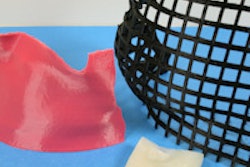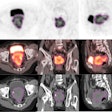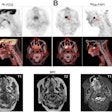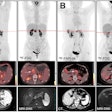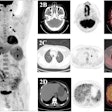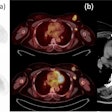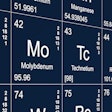Advanced cancer patients have better quality of life and reduced healthcare costs when radiation therapy and palliative care are coordinated and based on patient-reported feedback, according to research presented at this week's American Society for Radiation Oncology (ASTRO) meeting.
The data also showed that many patients experience pain relief within one week of treatment when rapid palliative radiotherapy that includes shorter, higher doses of radiation therapy is used.
The research comes from the University of Virginia Health System, which in 2012 developed an integrated patient care program for advanced cancer patients that used information from patient-reported outcomes to improve patients' health and quality of life and reduce costs of care. The program emphasized reducing hospitalizations and improving outpatient management of patients.
The facility initiated patient-reported outcomes for all patients beginning in October 2013, following a pilot testing phase completed in February 2013.
A patient questionnaire that asked patients how they felt emotionally and physically was incorporated into the facility's electronic medical record (EMR) system. A comprehensive assessment and rapid evaluation and treatment (CARE Track) palliative care team was alerted by the system to clinically significant reported changes in a patient's status.
A total of 646 cancer patients were enrolled in the CARE Track program. End-of-life data for 368 CARE Track patients were compared with end-of-life data for 198 patients not enrolled in the program.
A total of 967 patient-reported outcome surveys were completed by the 368 CARE Track patients. The CARE Track group had significantly fewer end-of-life hospitalizations, with 48.3% of patients being hospitalized in the final 90 days of life, compared with 64% from the control group.
Also, the CARE Track patients received more hospice care than the control group (69.6% versus 47%), which resulted in fewer hospital deaths for the CARE Track group than the control group (8.4% versus 38.5%). This difference in end-of-life care resulted in a reduced mean total cost of $7,317 per patient in the last 90 days of life.




